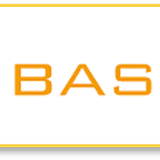The Effect Of Profitability And Financial Leverage On Cost Of Debt Moderated Earnings Management
DOI:
https://doi.org/10.24912/je.v26i1.716Abstract
This study aims to determine the effect of profitability and Financial Leverage on the Cost of Debt, and the role of Earnings Management as a moderating variable. In this study, profitability is measured by the ratio of return on equity, financial leverage is measured by the proxy debt ratio, earnings management is measured by discretionary accruals, and cost of debt is measured by the ratio of interest expense divided by the average total debt. The population in this study are publicly traded companies listed on the IDX, and the sample used in manufacturing companies listed on the IDX for the 2016-2019 period. Based on the purposive sampling method, the samples obtained were 69 manufacturing companies and 276 observations. The results showed that profitability has a negative effect on the cost of debt, while financial leverage has no effect on the cost of debt, earnings management cannot weaken the negative effect of profitability on the cost of debt and earnings management cannot weaken the negative effect of financial leverage on the cost of debt.
References
Abdurrahim, Ahim. (2014). Mendeteksi Earnings Management. Jurnal Akuntansi & Investasi Vol. 1 No. 2, 104-111.
Basuki, Agus Tri dan Prawoto, Nano. (2017). Analisis Regresi Dalam Penelitian Ekonomi & Bisnis : Dilengkapi Aplikasi SPSS & EVIEWS. PT Rajagrafindo Persada, Depok.
Brigham dan Houston. (2014). Dasar-dasar Manajemen Keuangan. Jakarta : Salemba Empat.
Dechow, P.M., Richard, G.S., and Amy P.S. (1995). Detecting Earnings Management. The Accounting Review, 70(2), 193-225.
Gujarati, D.N. (2012). Dasar-dasar Ekonometrika, Terjemahan Mangunsong,R.C., Salemba Empat, buku 2, Edisi 5, Jakarta.
Jensen & Meckling. (1976). The Theory of The Firm: Manajerial Behaviour, Agency Cost, and Ownership Structure, Journal of Financial and Economics, 3:305-360.
Juniarti, Natalia T.L. (2012). Corporate Governance Perception Index (CGPI) and Cost of Debt. Int J Bus Soc Sci. Vol. 3(18), 223–232.
Kasmir. (2016). Analisis Laporan Keuangan. Jakarta: Raja Grafindo Persada.
Lestari, E. D. (2019). Pengaruh Arus Kas Operasi, Kapasitas Operasi dan Likuiditas Terhadap Financial Distress Pada Perusahaan Manufaktur yang terdaftar di BEI 2015-2017. JEBA Ventura, STIE Perbanas.
Magnanelli, Barbara Sveva and Izzo, Maria Federica. (2017). Corporate Social Performance and Cost of Debt: Relationship. Social Responsibility Journal Vol. 13 No. 2, 250-265.
Myers, S. c. (1984). Capital Structure Puzzl. Journal of Finance 39 (3). July. pp 575-592.
Myers, S. C and N.S Majluf. (1984). Corporate Financing & Invesment Decision When Firm Have Information That Investor Do Not Have. Journal of Financial Economics, 13, pp 187-221.
Namazi, Mohammad and Khansalar, Ehsan. (2011). An Ivestigation of The Income Smoothing Behavior of Growth and Value Firms (Case Study: Tehran Stock Exchange Market). International Business Reasearch vol.4 (4), Oktober 2011, 84 - 94.
Prevost, A. K., Skousen, C. J. and Rao, R. P. (2008). Earnings Management and the Cost of Debt.
Rahmawati. (2015). Pengaruh Penghindaran Pajak dan Good Corporate Governance terhadap Biaya Utang (Studi Empiris pada Perusahan Manufaktur yang Terdaftar di BEI Tahun 2009 - 2013). Skripsi Fakultas Ekonomi Universitas Negeri Padang.
Safiq, Muhamad, Yustina, Andi Ina dan Muhaqiyah, Aeniyatul. (2018). Dampak Earnings Management dalam Hubungan Kinerja dengan Cost of Debt (Studi Pada Perusahaan Manufaktur di Bursa Efek Indonesia). Journal of Applied Accounting and Finance (JAAF). Volume 2, No. 1, 64-84.
Santosuosso, Pierluigi. (2014). Cost of Debt and Corporate Profitability. International Business Research Vol. 7 No. 2.
Sartono, Agus. (2012). Manajemen Keuangan Teori dan Aplikasi. Edisi4. BPFE. Yogyakarta.
Scott, R. William. (2015). Financial Accounting Theory. Seventh Edition. Pearson Prentice Hall: Toronto.
Sherly, Elvis Nopriyanti dan Fitria, Desi. (2019). Pengaruh Penghindaran Pajak, Kepemilikan Institusional, dan Profitabilitas Terhadap Biaya Hutang (studi Empiris Pada Perusahaan Manufaktur Yang Terdaftar di BEI Periode 2011-2015). Ekombis Review.
Situmeang, Chandra, Erlina, Maksum, Azhar and Supriana, Tavi. (2017). Effect of Earnings Management on Cost of Debt Before and After International Standard Financial Reporting Implementation. Advances in Economics, Business and Management Research (AEBMR), volume 46.
Sutrisno. (2012). Manajemen Keuangan Teori Konsep dan Aplikasi.Yogyakarta : Ekonisia
Swissi, Pebrina dan Purba, Benri. (2018). Pengaruh Struktur Kepemilikan Institusional, Kepemilikan Manajerial, Kepemilikan Keluarga, Pengungkapan Sukarela dan Leverage Terhadap Biaya Utang. Jurnal Akuntansi Keuangan Vol. 9 No. 2, 42-65.
Tarver, E. (2018). Which financial principles help companies choose capital structure?. Investopedia. December
Widyaningdyah, Agnes Utari. (2001). Analisis Faktor - Faktor Yang Berpengaruh Terhadap Earnings Management Pada Perusahaan Go Public Di Indonesia.Jurnal Akuntansi & Keuangan Vol. 3, (2), 89 – 101.
www.bi.go.id
www.idx.com
Downloads
Published
How to Cite
Issue
Section
License
Copyright (c) 2021 Jurnal Ekonomi

This work is licensed under a Creative Commons Attribution-NonCommercial-ShareAlike 4.0 International License.
This journal provides immediate open access to its content on the principle that making research freely available to the public supports a greater global exchange of knowledge.

This work is licensed under a Creative Commons Attribution-NonCommercial-ShareAlike 4.0 International License.
Similar Articles
- Abdurrahman Setiawan, Susy Muchtar, Factor Affecting The Capital Adequacy Ratio Of Banks Listed In Indonesia Stock Exchange , Jurnal Ekonomi: Vol. 26 No. 1 (2021): March 2021
You may also start an advanced similarity search for this article.


















